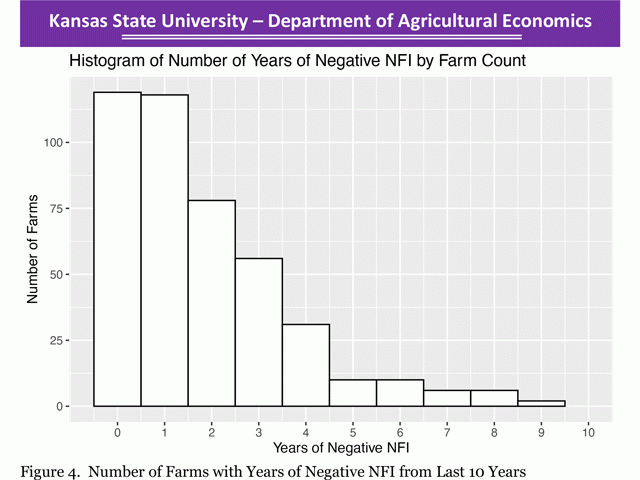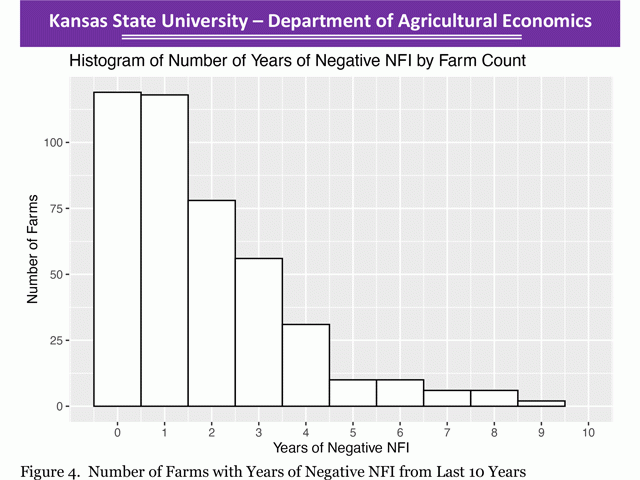Minding Ag's Business
Farm Income Study Shows Every Farm Has Down Years
Between weather and markets, it's practically guaranteed that a farm will have a year of negative net income once in a while. What's less common is the same farm chronically running in the red, according to a new analysis by Kansas State University farm management economist Greg Ibendahl. Using a decade of data from the Kansas Farm Management Association, Ibendahl compared the average net farm income and the number of farms experiencing losses.
"Even in the very best years, we always have a group of farms with negative net income," Ibendahl said. "For example, 2020 was a really good year for farm profitability in Kansas. But we still had 9% of farms that had negative net farm income."
Losses are more pronounced in down years, like 2015. That year, 44% of Kansas farms in the study had negative net income, Ibendahl said in a news release.
P[L1] D[0x0] M[300x250] OOP[F] ADUNIT[] T[]
"Things like weather and pricing and marketing decisions have an influence on what happens to net farm income, and those are the things that change a farmer's ability to earn a profit in any given year," Ibendahl said.
"Farmers are sometimes good at marketing, and sometimes they're not. Sometimes it depends on when they pull the trigger (on selling their crops or livestock)."
In any given year from 2011 through 2020, 7.6% to 40.1% of the farms in Ibendahl's study had a negative net farm income. However, when net farm income is averaged across the 10 years for each farm, only 5.5% of farms have a 10-year average that's negative. "Because the percentage of 10-year average farms with negative net farm income is lower than the lowest individual year's distribution, this is a strong indication that it's not always the same farms with negative net farm income," the report stated.
The caveat: There are nearly 800 farms in KFMA's database, but only 463 farms had a decade of usable records. The report also noted that since the farms studied are all farms with professional help, they could represent a better picture of profitability than non-KFMA farms. "These farms were also in the KMFA program at least 10 years, and the fact these farms are still going could cloud the overall farm outlook, as farms with lower profitability might no longer be in the program."
The takeaway: If everyone around you seems to have had a good year financially but your farm didn't, you're not the only one -- even if it feels like it.
You can read the full study here: https://agmanager.info/…
(c) Copyright 2022 DTN, LLC. All rights reserved.






Comments
To comment, please Log In or Join our Community .